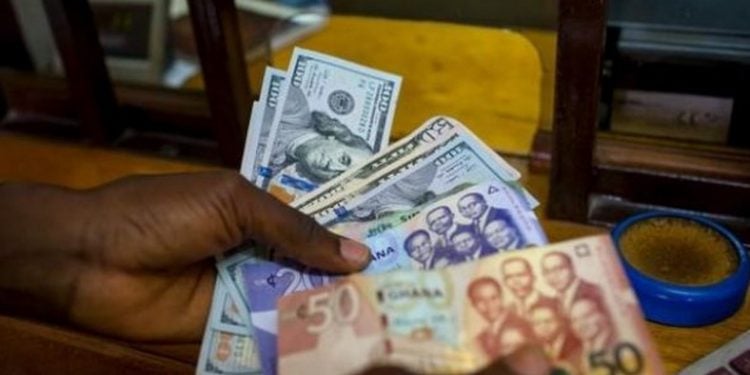The Ghanaian cedi has posted its strongest performance in years, gaining significant ground against major foreign currencies in the first seven months of 2025.
Data from the Bank of Ghana’s latest Summary of Economic and Financial Statistics show that the cedi appreciated by an impressive 40.7% against the US dollar, marking a dramatic turnaround for a currency that had been under pressure in recent years.
By the end of July, the cedi was trading at GH¢10.45 to the dollar on the interbank market, a sharp recovery from the GH¢15 range where it started the year. The most notable surge came in May, when the currency appreciated by 43% month-on-month, followed by a 42.6% gain in June, signalling sustained momentum through the second quarter.
The cedi’s resurgence extended beyond the US dollar. It gained 25.6% and 24.2% against the euro in June and July, respectively, trading at GH¢12.11 and GH¢12.25 during those months. Against the British pound, the cedi appreciated by 30.3% in June and 31.2% in July, with the exchange rate now standing at GH¢14.02.
In recent weeks, the cedi has largely held its ground. It closed trading on the interbank market at GH¢10.48 to the dollar, reflecting only a slight 0.47% depreciation over the past two weeks. On the retail market, the currency is averaging GH¢12.00 to the dollar.
Since the start of the year, the cedi has appreciated by 29.38% against the greenback, continuing a strong upward trajectory that government officials say is a reflection of strengthened economic fundamentals.
Finance Minister Dr. Cassiel Ato Forson, speaking during the 2025 Mid-Year Budget Review, credited the currency’s resurgence to increased export revenues, improved fiscal discipline, and growing investor confidence in the Ghanaian economy.
He noted that the cedi’s stability is already feeding into broader macroeconomic gains, including stabilised prices and lower inflation for some imported goods.
“The appreciation of the cedi is not only a financial indicator — it is a sign that our economy is getting back on track,” Dr. Forson said. “We are committed to sustaining these gains and driving forward an agenda of growth and stability.”
With inflation slowing and foreign reserves improving, the cedi’s rebound is widely seen as one of the clearest signals yet that Ghana’s economy may be emerging from its recent turbulence. The challenge now, analysts say, is ensuring the currency’s stability is sustained and backed by structural reforms that will withstand future external shocks.


